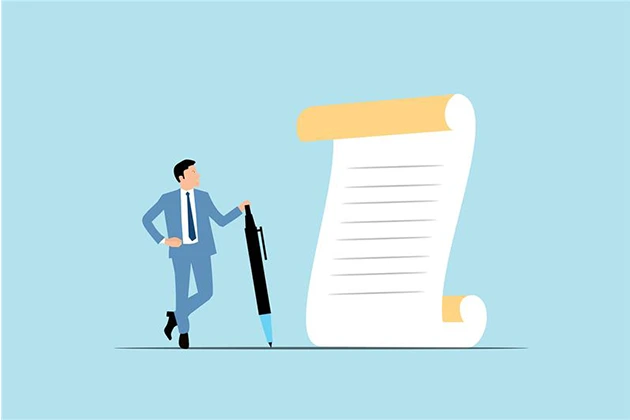A personal loan can be a valuable tool for addressing financial needs, whether it’s covering unexpected expenses, consolidating debt, or financing a large purchase. However, getting approved for a personal loan requires preparation and a clear understanding of the process. By presenting yourself as a reliable borrower, you can improve your chances of approval and secure favorable terms.
Understand Your Credit and Financial Profile
Your credit score plays a significant role in determining your eligibility for a personal loan; however, even with a low credit score, options like bad credit loans are available through alternative lenders. Lenders view it as a reflection of your financial responsibility and ability to repay borrowed funds. Before applying, it’s essential to know your credit score and understand how it affects your options.
Check your credit report to ensure all the information is accurate and up-to-date. Mistakes, such as incorrect payment histories or unclosed accounts, can negatively impact your score. Addressing these errors before applying can improve your chances of approval. If your credit score is lower than ideal, take steps to improve it, such as paying off existing debts and ensuring all payments are made on time.
Another crucial factor is your debt-to-income ratio (DTI), which compares your monthly debt obligations to your gross income. A lower DTI indicates you have room in your budget for additional debt, making you a more attractive borrower. Many lenders prefer a DTI of 35% or lower. If your ratio is higher, consider reducing your existing debt before applying for a loan.
Research Your Loan Options
Not all personal loans are the same, and understanding your options is key to finding one that fits your financial situation. Personal loans can be either secured or unsecured. Secured loans require collateral, such as a car or savings account, which can make approval easier but involves more risk if you’re unable to repay. Unsecured loans don’t require collateral but may come with higher interest rates, especially for borrowers with lower credit scores.
It’s also important to compare lenders, as they often have different criteria and terms. Some lenders specialize in affordable loan solutions for borrowers with limited credit histories or lower incomes, making them more accessible to a wider range of applicants. Others focus on providing competitive rates to borrowers with excellent credit. By researching multiple lenders, you can identify those that are more likely to approve your application and offer favorable terms. Moreover, if you’re considering short-term financing options, exploring what a bridging loan is can be highly beneficial. Bridging loans provide immediate financing while you secure long-term funding, ideal for bridging gaps in your financial planning.
Determine the Loan Amount and Prepare Documentation
Before applying, decide how much you need to borrow and ensure it aligns with your budget. Borrowing more than necessary not only increases your repayment burden but may also raise red flags for lenders. A clear understanding of your financial needs demonstrates responsibility and improves your chances of approval.
Lenders typically require documentation to assess your ability to repay the loan. Common requirements include proof of income, such as pay stubs or tax returns, and verification of your identity and address through government-issued ID and utility bills. Having these documents ready speeds up the application process and shows lenders you’re well-prepared. For self-employed individuals, additional documentation, such as bank statements or profit-and-loss statements, may be needed to verify income.
Strengthen Your Application
If you’re concerned about your ability to qualify, there are ways to enhance your application. Adding a co-signer with strong credit can improve your chances of approval. A co-signer provides lenders with additional assurance that the loan will be repaid, as they become equally responsible for the debt.
Another strategy is to offer collateral if you’re applying for a secured loan. By providing an asset as security, you reduce the lender’s risk and may also qualify for lower interest rates. Alternatively, applying for a smaller loan amount can increase the likelihood of approval, as it represents a lower risk for lenders.
Avoid Common Mistakes During the Application Process
Several common mistakes can derail your chances of getting approved for a personal loan. One of the most significant is applying to multiple lenders simultaneously, which results in several hard credit inquiries that can temporarily lower your credit score. Instead, focus on prequalifying with lenders that allow soft credit checks, giving you an idea of your eligibility without impacting your score.
Another mistake is failing to meet lender requirements. Each lender has specific criteria, such as minimum income levels or credit score thresholds. Applying without meeting these requirements often leads to rejection. To avoid this, review the lender’s terms carefully and ensure you qualify before submitting an application.
Providing inaccurate or incomplete information on your application is another common error. Lenders rely on accurate data to evaluate your creditworthiness, so double-check all details to ensure they’re correct. Mistakes or inconsistencies can delay the process or result in denial.
Commit to Responsible Borrowing
Getting approved for a personal loan is only part of the process. Once approved, it’s essential to manage the loan responsibly to maintain your financial health. Review the loan terms carefully, including the interest rate, repayment schedule, and any associated fees, to ensure you fully understand your obligations.
Set up a repayment plan that fits within your budget and prioritize making on-time payments. Late payments can damage your credit score and lead to penalties, increasing the cost of borrowing. If your financial situation changes unexpectedly, communicate with your lender immediately to explore options like deferment or loan modification.
By taking these steps and staying committed to repayment, you’ll not only meet your loan obligations but also build a positive credit history. This can enhance your eligibility for future loans and enable you to secure even better terms as your financial profile improves. With careful preparation and responsible management, a personal loan can be a valuable tool for achieving your financial goals.











